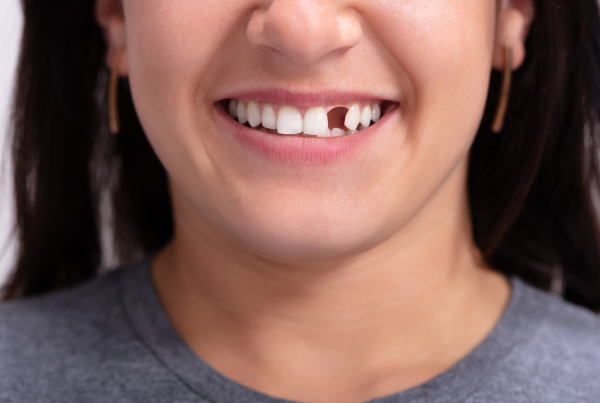Diabetes is becoming increasingly prevalent and this disease can affect your whole body, including your oral health. It is estimated that close to two million Canadian adults have diabetes. One third of these people are unaware that they have the disease. Over a quarter of Canadians aged 75 and older have diabetes. The disease is the seventh leading cause of death in Canada. If you have been diagnosed with diabetes then it is important that you take extra care over your dental health and that you manage your blood sugar levels as well as you can. An increase in blood sugar levels can increase your risk for oral health problems as diabetics who struggle to keep their blood sugar levels under control will have more glucose in their saliva.
Dental Problems Associated with Diabetes
Diabetics are more likely to suffer from dry mouth, which in turn can lead to problems such as infections, ulcers and soreness and this does increase the risk of tooth decay and gum disease. Dry mouth is a condition where insufficient saliva is produced and saliva is essential for maintaining a healthy environment in your mouth.
Thrush is another problem, particularly for a diabetic who needs to take antibiotics to fight infections. Thrush is a fungus that thrives on the glucose in saliva of people with poorly controlled diabetes. It is unpleasant and can cause a burning sensation.
Gum disease can be a particular issue as the bacteria responsible for causing infection and inflammation in the gums will thrive on excess glucose in saliva. One of the main symptoms of gum disease is bleeding gums and unfortunately this can make things much worse for diabetics as mouth bacteria can easily get into the bloodstream and from there they can create new sites of inflammation. This can make it even more difficult to control glucose levels.
If You Have Diabetes We Can Work with You
If you have diabetes, then please let us know when you next visit our dental practice. Dr. Larry Leslie will need to know medications currently used and how well you are able to control your blood sugar levels. We can then work with you to help reduce your risk of dental problems and your treatment plan will include regular examinations and professional cleanings. It’s quite possible that we might recommend you have your teeth professionally cleaned more frequently as this is a great way to avoid gum disease.
Looking after Your Dental Health Home
There are a number of things you can do to help reduce the impact of this disease on your dental health. Firstly it’s obviously important to keep your blood sugar levels as close to normal as you can. If you do have dry mouth then sucking on ice cubes or sugar-free gum can help, as can drinking plenty of water to make sure you are well hydrated. We can also provide you with a prescription for artificial saliva or you can buy this over-the-counter.
Make sure you brush your teeth regularly using a toothbrush with soft bristles and that you floss once-a-day, preferably last thing at night so you go to bed with a clean mouth. If you wear dentures, don’t sleep in them but instead make sure you take them out and thoroughly clean them to reduce the risk of soreness or fungal infections. If you currently smoke, think about quitting as this habit does increase your risk of poor oral health.
* Source: National Diabetes Surveillance System





